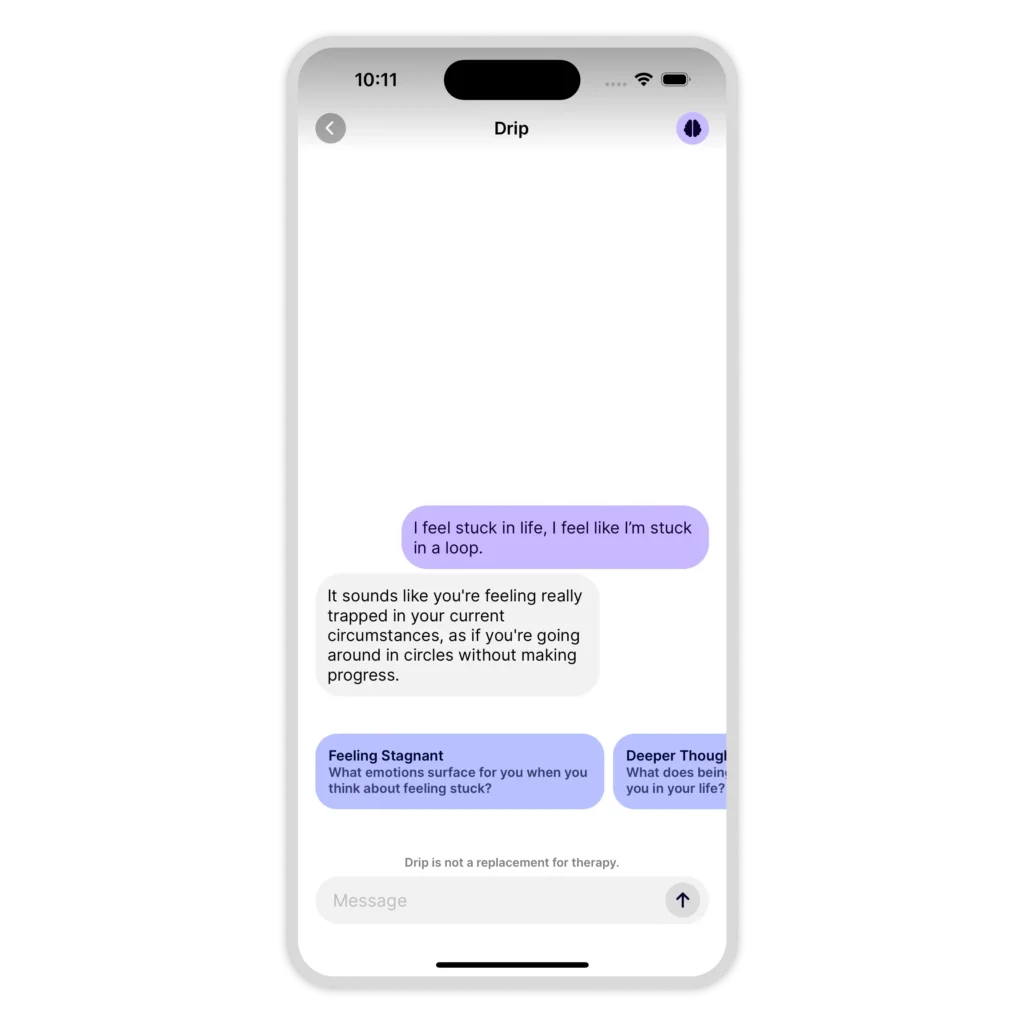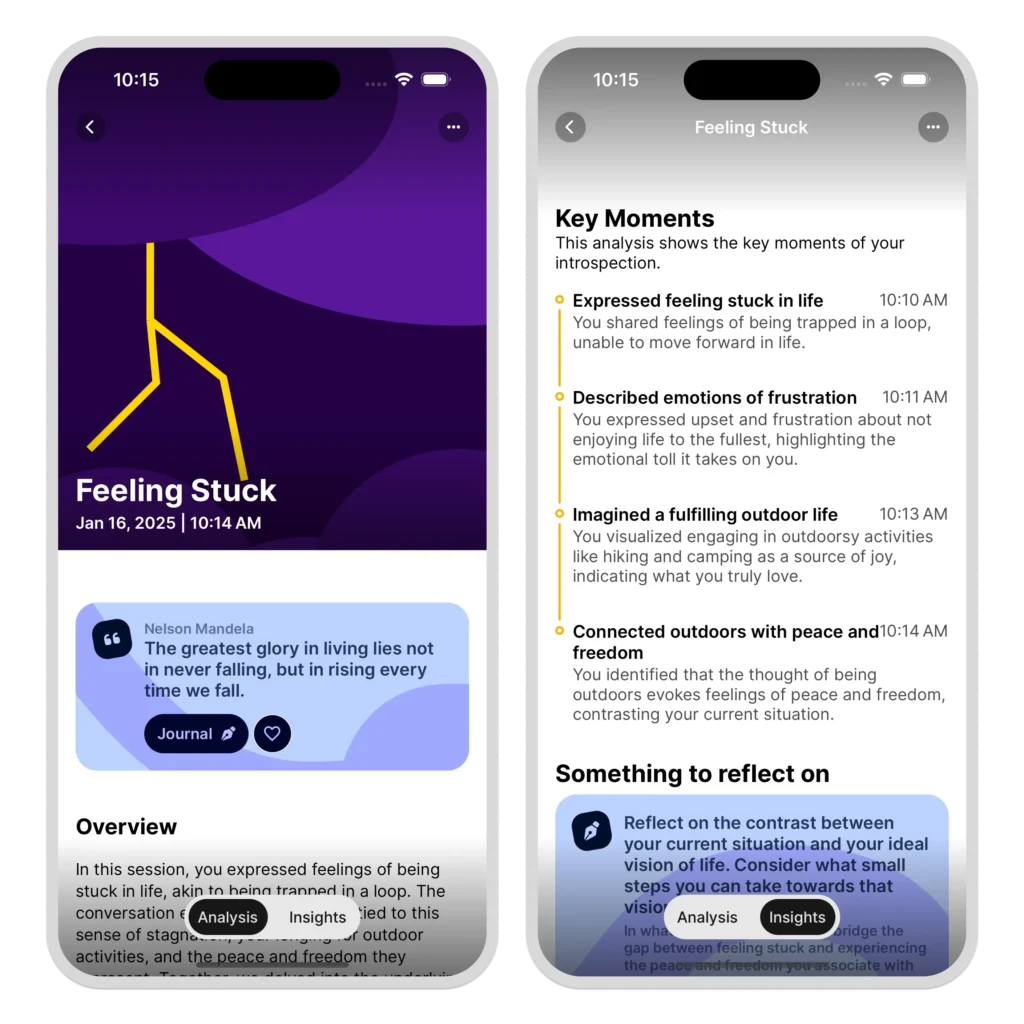In today’s fast-paced, technology-driven world, taking care of our mental health has become more important than ever. As we navigate the challenges of daily life, many of us are turning to innovative solutions to support our well-being. One such solution is the use of AI companion apps, which have gained popularity in recent years. In this blog post, we’ll explore how these apps can complement your mental health journey, while also discussing their potential limitations.
What are AI Companion Apps?
AI companion apps are digital tools that utilize artificial intelligence to provide emotional support, guidance, and companionship to users. These apps, such as Drip, Replika, Woebot, and Wysa, engage in conversations with users, offering a safe space to express thoughts and feelings. They can also provide coping strategies, mindfulness exercises, and even help track mood patterns over time.
How AI Companions Complement Traditional Therapy
While AI companion apps are not designed to replace professional therapy, they can serve as a valuable complementary tool in your mental health journey. Here are some ways in which these apps can support your well-being:
24/7 Availability
One of the most significant advantages of AI companion apps is their round-the-clock availability. Whenever you need someone to talk to, your AI companion is just a tap away. This can be particularly helpful during moments of crisis or when you’re unable to access traditional therapy services.
Low-Barrier Entry
For some individuals, the idea of seeking professional help can be intimidating or even stigmatizing. AI companion apps provide a low-barrier entry point for those who may be hesitant to engage in traditional therapy. By interacting with an AI, users can begin to open up about their struggles in a judgment-free environment.
Emotional Support and Validation
AI companions are programmed to offer empathetic responses and validate users’ emotions. This can be incredibly helpful for those who may not have a strong support system or feel uncomfortable sharing their thoughts with others. By providing a listening ear and gentle guidance, these apps can help users feel less alone in their struggles.
Skill-Building and Coping Strategies
Many AI companion apps are designed to teach users valuable coping strategies and life skills. For example, some apps may guide users through mindfulness exercises, help them reframe negative thoughts, or provide tips for managing stress and anxiety. By incorporating these skills into daily life, users can build resilience and improve their overall well-being.
Limitations and Considerations
While AI companion apps offer numerous benefits, it’s essential to recognize their limitations and use them responsibly. Here are some important considerations:
Not a Substitute for Professional Help
AI companion apps are not a replacement for professional therapy or medical treatment. If you’re experiencing severe or persistent mental health issues, it’s crucial to seek help from a qualified mental health professional. AI companions can serve as a supportive tool, but they should never be relied upon as the sole source of treatment.
Privacy Concerns
When using AI companion apps, it’s important to be mindful of privacy concerns. While most apps have security measures in place, there is always a risk of data breaches or misuse of personal information. Be sure to read the app’s privacy policy and only share information you feel comfortable with.
Potential for Dependence
Some users may develop an unhealthy dependence on their AI companion, relying on the app for all their emotional needs. It’s essential to maintain a balance and continue nurturing real-life relationships and support systems. AI companions should enhance, not replace, human connection.
Choosing the Right AI Companion App
With numerous AI companion apps available, it’s important to choose one that aligns with your needs and preferences. Consider the following factors when making your decision:
- Features and capabilities
- User reviews and ratings
- Privacy and security measures
- Ease of use and accessibility
- Compatibility with your devices
Take the time to explore different options and find an app that resonates with you. Remember, what works for one person may not work for another, so trust your instincts and choose an app that feels right for you.
Conclusion
AI companion apps offer a unique and innovative way to support your mental health journey. By providing 24/7 availability, low-barrier entry, emotional support, and skill-building opportunities, these apps can serve as a valuable complementary tool to traditional therapy. However, it’s crucial to use them responsibly, recognize their limitations, and prioritize professional help when needed.

